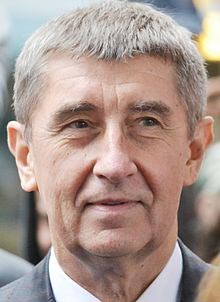PRAGUE (Reuters) – Czech billionaire Andrej Babis won a thumping victory in Saturday’s election as voters shunned traditional parties and gave a mandate to the anti-establishment businessman pledging to fight political corruption while facing fraud charges himself.
Babis’s ANO movement got 29.6 percent of the vote, nearly three times as much as anyone else in an election that saw a record nine parties secure seats in parliament’s lower house. He now faces the tricky task of finding willing government partners ready to overlook his legal troubles and domineering manner.

ANO is the first party to break a quarter century of dominance by two mainstream centre-right and centre-left parties, highlighting a shift in Europe where a refugee crisis has helped the rise of protest groups.
Babis has promised to bring his business expertise to government. He pledges to resist deeper integration of the European Union and any efforts in Brussels to force the country of 10.6 million to take in refugees.
The dramatic power shift comes as the Czech Republic has enjoyed rapid economic growth, a balanced budget and the lowest unemployment in the EU. Wages are growing at their fastest rate in a decade.
But unlike ANO, the Social Democrats — who led a government with ANO and another partner since 2014 — failed to capitalise on that, and had their worst showing, at 7.3 per cent, since the country peacefully split from Slovakia in 1993.
Two other protest movements — the Pirate party courting unhappy liberals and the far-right, anti-EU SPD — surged to almost 11 percent each, making them, respectively, the third and fourth largest parliamentary players.
Babis faces tough negotiations after former partners the Social Democrats and centrist Christian Democrats both said on Saturday they could not be in a cabinet with anyone under police investigation.
The runner-up centre-right Civic Democrats also ruled out a government with ANO as well as two other small factions.
Babis was undeterred and said he would talk to all parties.
“I believe we will build a government that will be one team,” Babis told supporters and journalists at his party’s headquarters. “We want to fulfil our programme for a better life in our country.”
Drawing comparisons with U.S. President Donald Trump for his business background and anti-establishment message, Babis has maintained his popularity despite charges he illegally received a 2 million euro EU subsidy when he ran his food, agriculture and chemical empire, worth an estimated $4 billion, before entering politics.
He has denied wrongdoing and has also fought back against rivals questioning his past business practices and accusations of conflicts of interest.
His holdings, including interests in national newspapers and a radio station, were placed in a trust earlier this year.
Babis’s tough EU line and refusal to adopt the euro until the currency zone reforms have played well with eurosceptic Czechs but raised the prospect he may join Hungary and Poland on a collision course with the bloc.
But he also supports EU membership and does not share the relatively illiberal ideology of Budapest and Warsaw.
